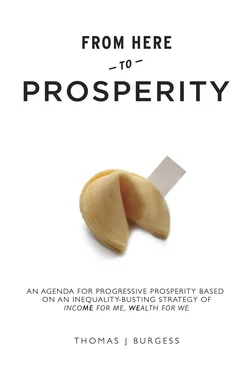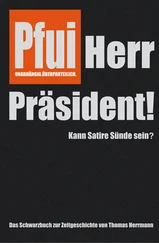Talk of cutting back on government, reducing its role, and therefore decreasing taxes, misses the point that government is there to provide a service to its people. We, all of us, are the people. We elect a government to provide what we cannot provide for ourselves, individually or as a local community on a small scale. Government is not there just to legislate and regulate or only act as a protector of the individual against others or outsiders. What services it should provide and to what extent, we decide. Others may differ, but in my view, it makes sense for the government to provide healthcare, welfare, education, infrastructure, law and order, defence and international relations. Its primary roles should be to ensure opportunity for all and to minimise inequality in line with basic human rights. This is neither a recipe for the ‘Big Government’ so despised by right-wing libertarians nor for ‘rolling back the state’ to the point where every other activity would be beyond its remit. It is simply a question of resetting our priorities. Narrowing the wealth gap and abolishing the democratic deficit that it creates are all part of the same process. We tell ourselves we live in a democracy with freedom and opportunity for most if not all. Yet we see policies directed and influenced by those with wealth while the poor and the powerless are marginalised and disenfranchised; this is not democracy but plutocracy, a society dominated and run in the interests of the wealthy.
The idea of tackling poverty and empowering the poor instinctively worries some people who think it might lead to swarms of the discontented tearing down the gates of their mansions, invading their holiday islands or tossing them through their penthouse windows. Why should it? If anything, putting even greater distance between haves and have-nots is far more likely to end messily. In 2008, then Australian Prime Minister Kevin Rudd called today’s new rich ‘the children of Gordon Gekko’, referencing the character in the movie Wall Street who said, ‘greed, for lack of a better word, is good’. Between them a class of fat cats and wide-boys backed by political zealots brought about the Great Recession of the early 2000s, ruined countless lives and – against all natural justice – did very nicely out of it. There has been no let up in the eye-watering salaries, golden handshakes and ‘bonuses’ that help create the wealth gap.
The multi-billionaire owner of luxury jewellery Cartier, Johann Rupert who has amassed a fortune of around $7.5 billion from brands including Cartier, Chloe and Vacheron Constantin commented in June 2015 that the thought of the poor rising up and overthrowing the rich keeps him awake at night. He added that he fears that such a revolution will mean the middle classes won’t want to buy luxury goods in the future for fear of exposing their wealth. ‘How is society going to cope with structural unemployment and the envy, hatred and the social warfare? We are destroying the middle classes at this stage and it will affect us. It’s unfair.’ It seems the harsh reality may be starting to sink in to the 1%.
New York-based, Insite Security, specialising in personal security for wealthy individuals as well as executives in multinational corporations has seen a 40% annual increase in demand for work on panic rooms in 2015. Founder, former lawyer and US secret service agent, Christopher Falkenberg told The Financial Times that ‘Fears of inequality have heightened concern among people on Wall Street and those in hedge funds. Inequality is an issue. People are concerned for their safety from activists or criminals targeting the affluent.’
For some the remedy appears to lie in the enlightened self-interest, even philanthropy. Take Bill Gates and Warren Buffett, two of the wealthiest men in the world. On a March day in 2010, they sat in a diner in Carter Lake, Iowa, and hatched a scheme to ask America’s billionaires to pledge the majority of their wealth to charity. Buffet decided to donate 99% of his, saying, ‘I couldn’t be happier with that decision.’ Even bearing in mind how much they will have left in the bank when all is done, this is about as generous as it gets and it chimes with a long tradition of benefaction amongst the super-rich in the USA.
J. Paul Getty made his first million dollars by the age of 24. By the middle of the last century he was one of the richest men in America and by any measure he was both shrewd and successful. He said:
No matter how many millions an individual amasses, if he is in business he must always consider his wealth as a means of improving living conditions everywhere. He must remember that he has responsibilities toward his associates, employees, stockholders and the public.
I have no doubt this was honestly meant but in a democracy we all have these and similar responsibilities. Our duties and rights are, or at least should be, the same. Philanthropy on the industrial scale practiced by Gates, Buffett et al, is the privilege of the 0.1% who have acquired countries’ worth of wealth or the even more infinitesimal number who choose to exercise it. There is nothing wrong and a great deal right with people contributing to worthwhile causes to alleviate misfortune, help cure disease and spread happiness. We should all be in a position to do so in our own right or through the people we elect. Something is very wrong if plutocrats are setting the social agenda.
The US property billionaire and Presidential candidate Donald Trump may have some questionable and outrageous views but in 1999 he came up with an interesting idea. The national debt has always been a burden for most countries. The high cost of servicing it comes out of the current account every year but it goes no way to reducing the debt. At the turn of the century, Trump proposed a plan to pay off the US national debt with a one-time ‘net worth tax’ on individuals and trusts worth $10 million or more. A 14.25% levy on such net worth would raise $5.7 trillion and wipe out the debt in one fell swoop. The value of the individual’s principal home would be exempt, deducted from the net worth total. At the time, he calculated that eliminating the national debt in this way would save the Federal Government $200 billion a year in interest payments. He proposed to earmark half the savings for middle class tax cuts, and the other half for Social Security. Trump, whose own net worth was then estimated at $5 billion (it’s slightly less now), said, ‘personally this plan would cost me hundreds of millions of dollars, but in all honesty, it’s worth it.’ He predicted that debt elimination combined with his tax cuts would trigger a 35 to 40% boost in economic activity, with more business start-ups, more jobs, and more prosperity. ‘It is a win-win for the American people, an idea no conventional politician would have the guts to put forward.’ It went nowhere, which is no surprise, but what is particularly shameful is that it took a plutocrat to propose it in the first place.
When wealth captures government policymaking, the consequences include the erosion of democratic governance, the pulling apart of social cohesion and the vanishing of equal opportunities. The Oxfam report Working for the Few highlights one of the potential effects of the plutocracy and the wealth gap as irreversible ‘opportunity capture’ by the wealthy: this is where the lowest tax rates, the best education, and the most effective healthcare are all claimed by the children of the rich, creating cycles of advantage that are transmitted across generations. As US Supreme Court Justice Louis Brandeis famously said, ‘we may have democracy, or we may have wealth concentrated in the hands of the few, but we cannot have both.’
Читать дальше












